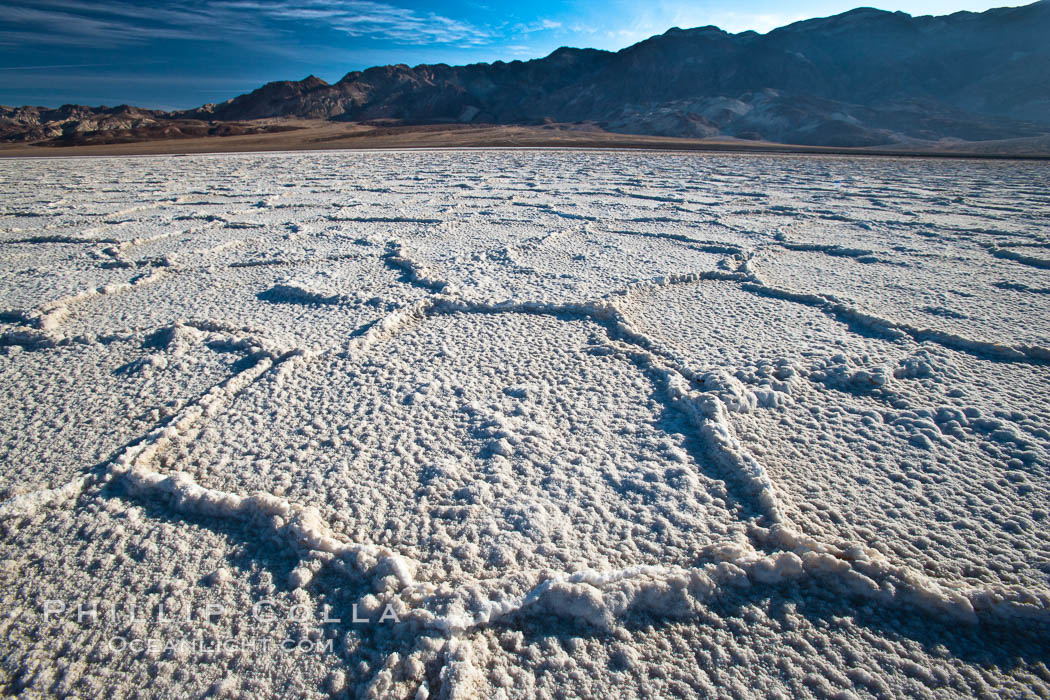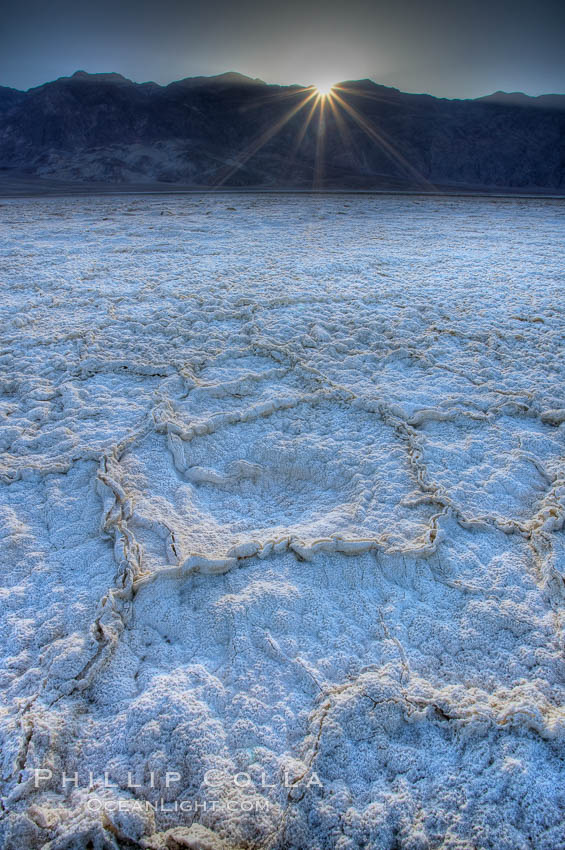The Devil’s Golf Course is a curious assemblage of crystalline salt shapes spread over a large swath of the Death Valley salt pan. This saltpan, which is the lowest point in Death Valley National Park, and indeed the western hemisphere, holds a small amount of subsurface moisture. This water is extremely salty and briny, a result of the accumulation of minerals that were left behind when the 30-foot-deep Holocene-era lake disappeared (the accumulation continues with each year’s winter rains). Capillary action draws the subsurface moisture upward. As the water evaporates, it leaves behind salt crystals that form myriad fantastic shapes. The growth is quite slow, perhaps as little as one inch every 35 years. Wind friction and seasonal flooding of the area during winter storms erodes or reshapes the salt crystal forms, and the process continues.
Devils Golf Course, California. Evaporated salt has formed into gnarled, complex crystalline shapes in on the salt pan of Death Valley National Park, one of the largest salt pans in the world. The shapes are constantly evolving as occasional floods submerge the salt concretions before receding and depositing more salt.
Image ID: 15582
Location: Devils Golf Course, Death Valley National Park, California, USA
Devils Golf Course. Evaporated salt has formed into gnarled, complex crystalline shapes on the salt pan of Death Valley National Park, one of the largest salt pans in the world. The shapes are constantly evolving as occasional floods submerge the salt concretions before receding and depositing more salt.
Image ID: 20552
Location: Devils Golf Course, Death Valley National Park, California, USA





